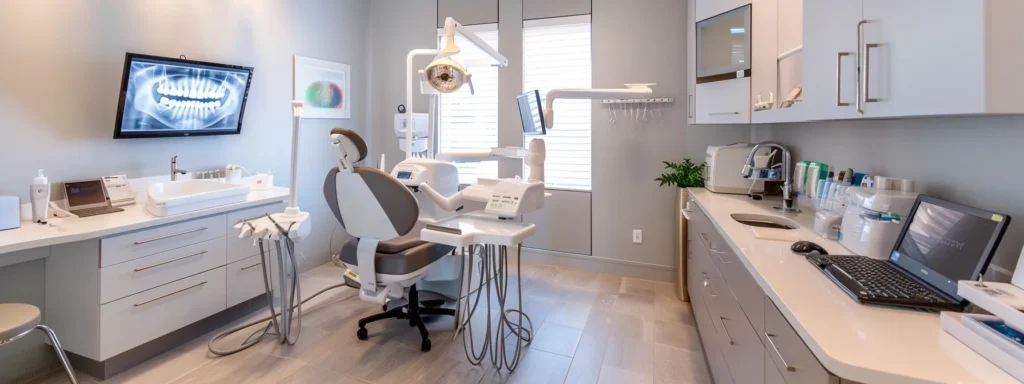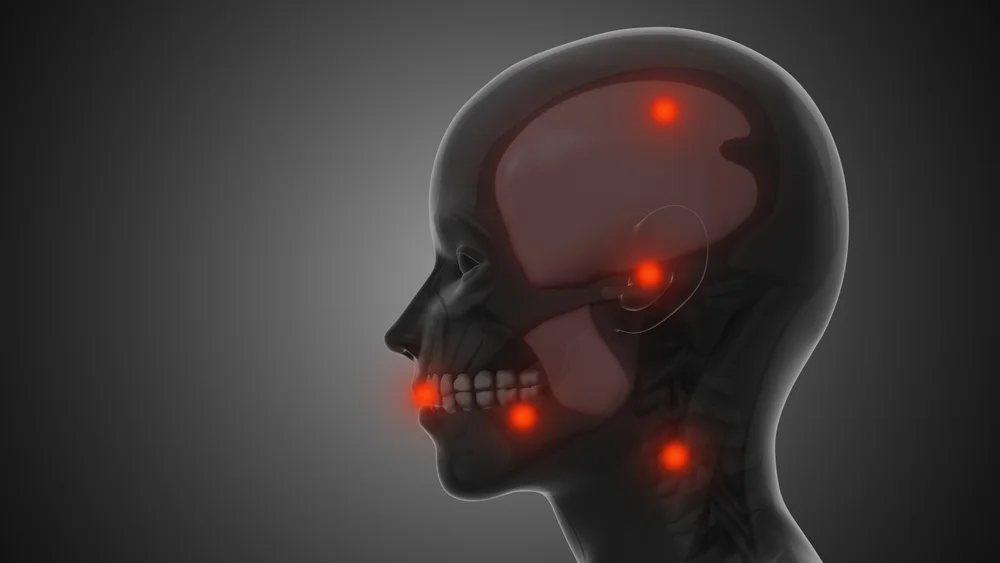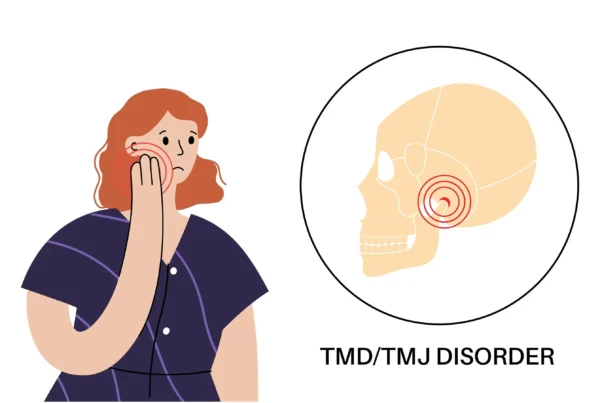emporomandibular joint (TMJ) arthritis can have a profound effect on how you eat, speak, and live your daily life. At Randall Dentistry in Dallas, Dr. Drew Randall takes a comprehensive, compassionate approach to diagnosing and managing TMJ degeneration. Whether caused by osteoarthritis or rheumatoid arthritis, TMJ arthritis can result in stiffness, inflammation, and gradual joint deterioration if not addressed early.
No two patients experience TMJ arthritis in the same way. That’s why it’s crucial to understand the underlying cause—whether mechanical wear or autoimmune activity. Identifying the correct source of your joint pain guides us toward an effective treatment strategy that balances relief with long-term joint protection.
What Causes TMJ Arthritis and How It Progresses
TMJ arthritis can stem from two primary causes. Osteoarthritis occurs due to years of wear and tear, gradually breaking down the cartilage that cushions the jaw joint. Over time, this can lead to bone-on-bone contact, pain, and reduced mobility.
On the other hand, rheumatoid arthritis is an autoimmune condition in which your body attacks the joint lining, causing swelling, inflammation, and joint erosion. Unlike osteoarthritis, it often affects multiple joints, including the jaw. Pinpointing the specific form of arthritis is essential in shaping your care plan—ensuring you receive support that matches your symptoms, severity, and overall health.
Dr. Randall crafts each treatment plan based on the specific arthritis type, combining dental therapies with medical coordination and daily comfort strategies. Every recommendation is shaped by your lifestyle, comfort preferences, and long-term wellness goals.
Signs and Diagnosis: When to Get Evaluated
Many patients come to Randall Dentistry not knowing that their jaw discomfort is linked to arthritis. Symptoms often start gradually, with minor stiffness or fatigue during meals. Over time, these signs can escalate into more persistent discomfort or difficulty opening the jaw fully.
During your evaluation, Dr. Randall will assess the joint using hands-on techniques and advanced imaging such as CBCT scans. This technology allows us to detect early degeneration, monitor joint spacing, and determine the type and stage of arthritis present. Together, these insights lead to a precise diagnosis—and a more effective plan.
Jaw pain, clicking, reduced range of motion, or aching while speaking or chewing are signs worth exploring. The earlier we intervene, the more we can do to reduce damage and improve your quality of life.
Living With TMJ Arthritis: Lifestyle Effects
TMJ arthritis goes beyond joint pain—it can disrupt everyday life in subtle yet significant ways. Tasks like brushing, chewing, or even speaking for extended periods can become uncomfortable. For many patients, this discomfort impacts their dietary choices, social life, and overall wellbeing.
We see patients experiencing:
- Limited jaw movement that makes oral hygiene difficult
- Discomfort during meals, leading to softer food preferences or skipped meals
- Speech challenges due to joint stiffness or inflammation
At Randall Dentistry, we build care plans that account for these challenges. From recommending toothbrush modifications to tailoring your meal plan, we help you stay comfortable while preserving function and protecting your long-term oral health.

Treatment Options for TMJ Arthritis Relief
There is no one-size-fits-all solution for TMJ arthritis—but with the right tools and guidance, relief is within reach. Dr. Randall’s approach is built on three pillars of care: conservative dental therapy, personalized home care, and strategic medical support when needed.
Here’s what your treatment may include:
- Gentle exercises and physical therapy to maintain joint mobility
- Custom oral appliances to reduce joint stress and improve bite alignment
- Medications or anti-inflammatory injections coordinated with your physician when appropriate
Our goal is to create a stable, supportive environment for the joint—allowing it to function comfortably and efficiently while reducing further degeneration. Treatment plans evolve as your needs change, always keeping comfort and long-term health in focus.
Long-Term Prevention and Outlook
Preventing the progression of TMJ arthritis starts with awareness and smart choices. At Randall Dentistry, we coach patients on how to preserve joint health through practical habits and regular monitoring. With the right plan, you can maintain comfort and prevent unnecessary complications.
Prevention includes:
- Early intervention at the first sign of stiffness or pain
- Eating softer foods that reduce joint strain
- Practicing jaw relaxation and stress management techniques
- Regular check-ups with Dr. Randall to assess joint condition and appliance fit
These small steps build a powerful defense against long-term joint damage. Our team partners with you to develop routines that are sustainable, effective, and tailored to your lifestyle.
Why Dallas Patients Choose Dr. Drew Randall for TMJ Arthritis Care
Randall Dentistry is proud to offer Dallas residents a thoughtful and skilled approach to TMJ arthritis management. Dr. Drew Randall brings years of experience, a deep understanding of dental-joint relationships, and a personalized treatment philosophy that puts patient comfort first.
We listen carefully, educate clearly, and guide you through every stage of your care. Whether you need a simple oral appliance, joint support therapy, or coordination with a rheumatologist, Dr. Randall ensures your treatment is effective, comfortable, and built to support your lifestyle.
From diagnosis to daily care, we’re here to restore more than just your jaw—we help you regain confidence, function, and peace of mind. Schedule your consultation today.
Randall Dentistry
214-750-4901
6805 Hillcrest Avenue, Suite 218
Dallas, TX 75205
FAQs About TMJ Arthritis
How can I tell if I have arthritis in my jaw?
TMJ arthritis may present as ongoing stiffness, aching pain in the jaw, difficulty chewing, or a grinding sensation during movement. If these symptoms persist or worsen, a dental exam with imaging is the best way to confirm whether arthritis is present.
What treatments are available for jaw joint arthritis?
Treatment options include custom oral appliances, medications, jaw exercises, and in some cases, injections or surgical support. Dr. Randall tailors every plan to your comfort level, condition, and long-term goals.
Can TMJ arthritis be prevented?
While it may not be entirely preventable, early action and lifestyle adjustments can slow its progression. Regular dental visits, stress reduction, joint-friendly habits, and early symptom monitoring all help protect your jaw.





